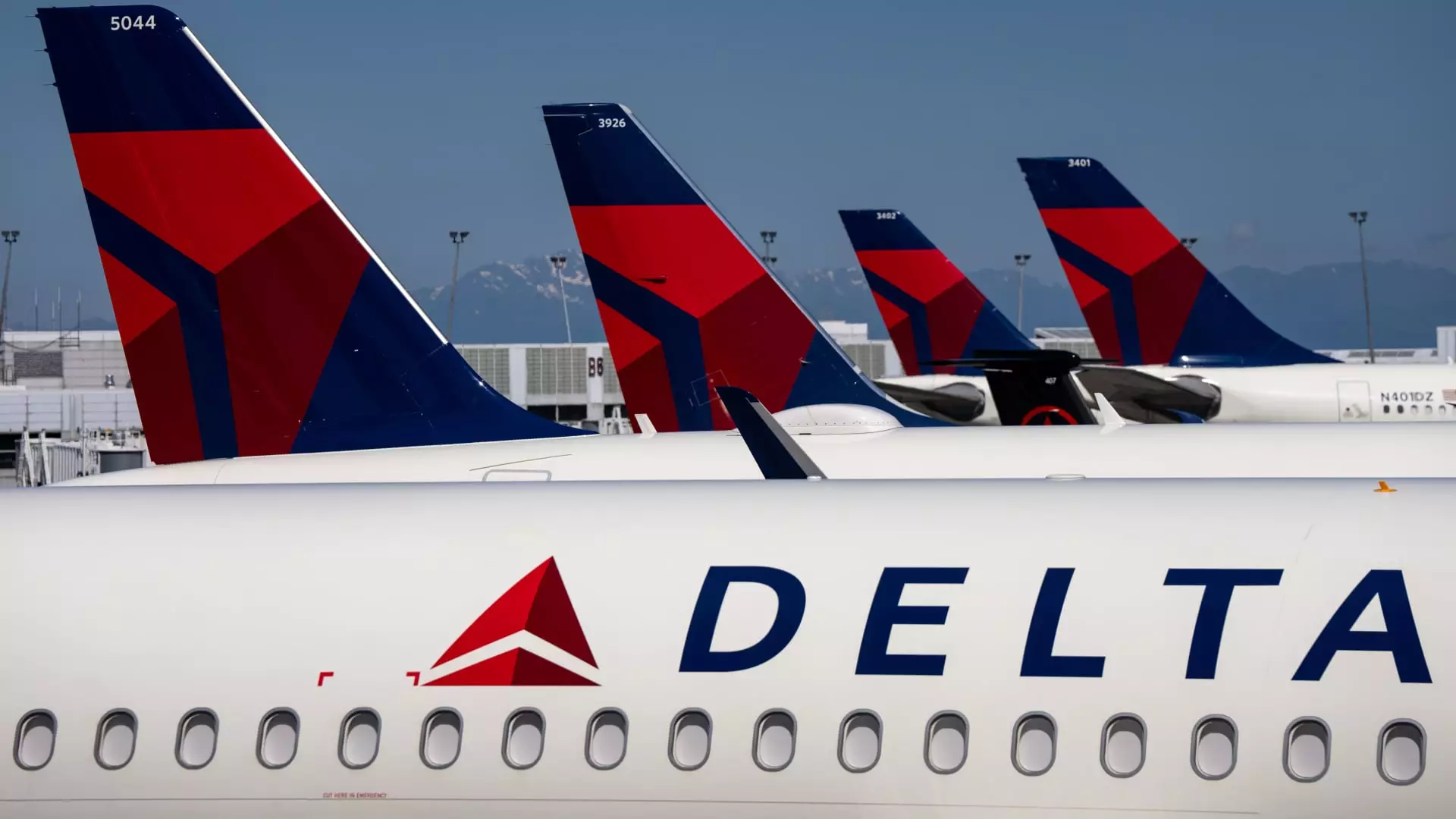Delta Air Lines has made a shocking adjustment to its financial expectations for the first quarter of the year, slashing its profit forecast by nearly 30%. This is not just about Delta; it serves as an alarming indicator of a broader turbulence brewing within the travel industry. The airline expects its revenue growth to be a mere 5% compared to last year, significantly lower than the 6-8% projected just three months earlier. Such revisions raise red flags for an industry that had previously clung to signs of recovery post-Covid. A mere 5% growth might be deemed acceptable in a steady market; however, in today’s rapidly shifting economic landscape, it signals deeper issues that can no longer be ignored.
The Confidence Crisis: A Reflection on Consumer Behavior
Delta’s CEO, Ed Bastian, has expressed concerns that the diminishing consumer and corporate confidence is shaping this dire outlook. He attributes this decline to macroeconomic uncertainties and a notable softening in domestic demand. This realization raises the question: what is causing this weakening confidence? Perhaps it’s the gradual return to a landscape rife with inflation, geopolitical tensions, and the specter of recession looming on the horizon. Moreover, recent tragic incidents involving aircraft—one attributed to a midair collision and another to a landing mishap—have undoubtedly contributed to consumer anxiety regarding aviation safety, casting a shadow over the industry.
The Ripple Effect: Impact on Competitors and the Industry at Large
Delta’s situation is particularly telling when viewed in relation to its competitors. American Airlines, Southwest Airlines, and United Airlines are all slated to reveal their latest demand trends at an upcoming industry conference, but Delta’s severe shift raises suspicion about their own forecasts. If Delta, often seen as a bellwether for the sector, is facing significant challenges, what does that imply for the entire airline industry? Such undercurrents can create a ripple effect, impacting everything from stock prices to operational strategies across the board. The stark contrast between earlier resilience and the current downturn starkly illustrates how fragile the travel sector can be amidst shifting consumer behaviors.
Exacerbating Factors: Safety Concerns and External Pressures
Bastian’s comments about safety-related concerns are telling. The airline industry has long been seen as one of the safest modes of transportation, yet these recent tragedies have renewed apprehension among travelers. Airlines must recognize the need to address these concerns robustly; passenger peace of mind is an often-underrated aspect of travel that can make or break bookings. Coupled with external pressures from rising costs and economic downturns, these factors combine to create a perfect storm that leaves airlines reeling.
As Delta navigates this tumultuous period, it raises a pertinent question about the future of air travel: can the sector rebound without significant changes in consumer engagement and safety culture? There’s an urgent need for the industry to foster not just economic recovery, but also a renewal of trust among consumers. Time will tell whether these adjustments will resonate or simply compound existing issues.

